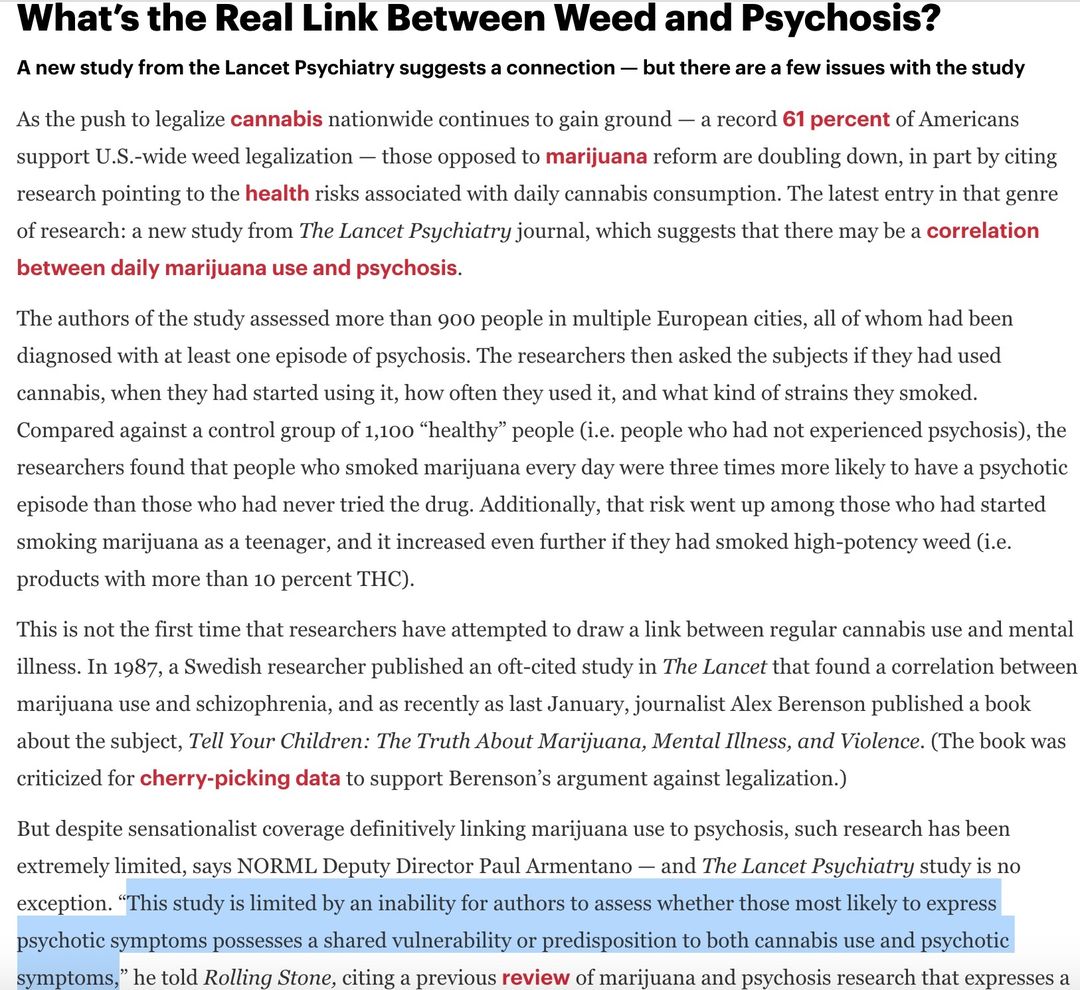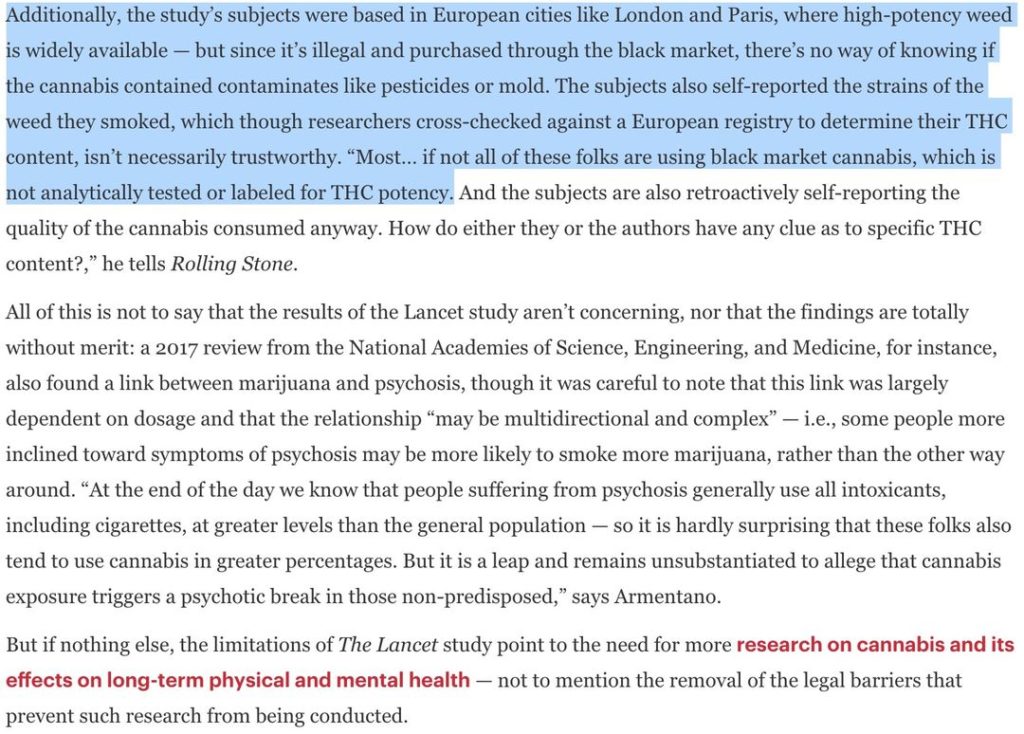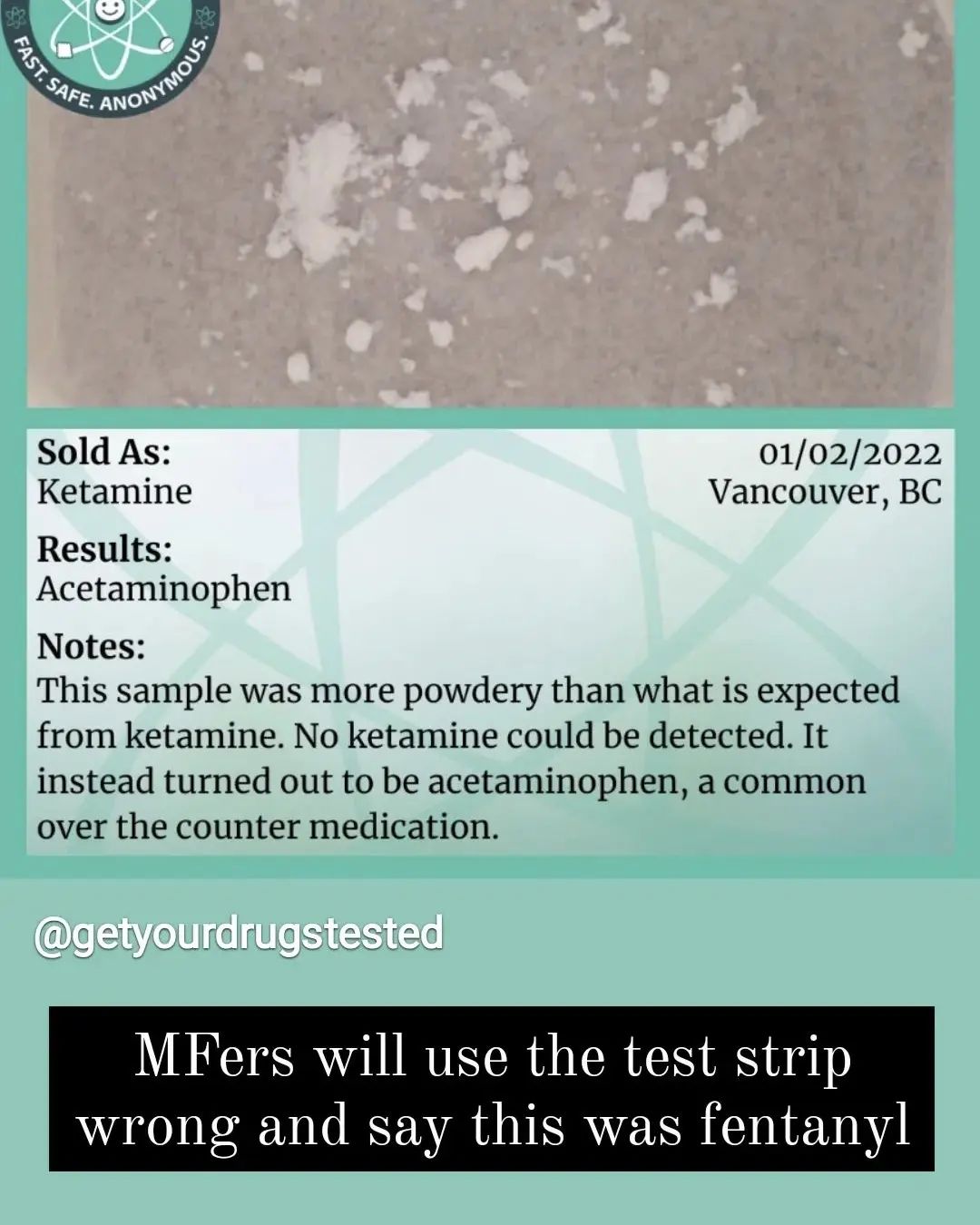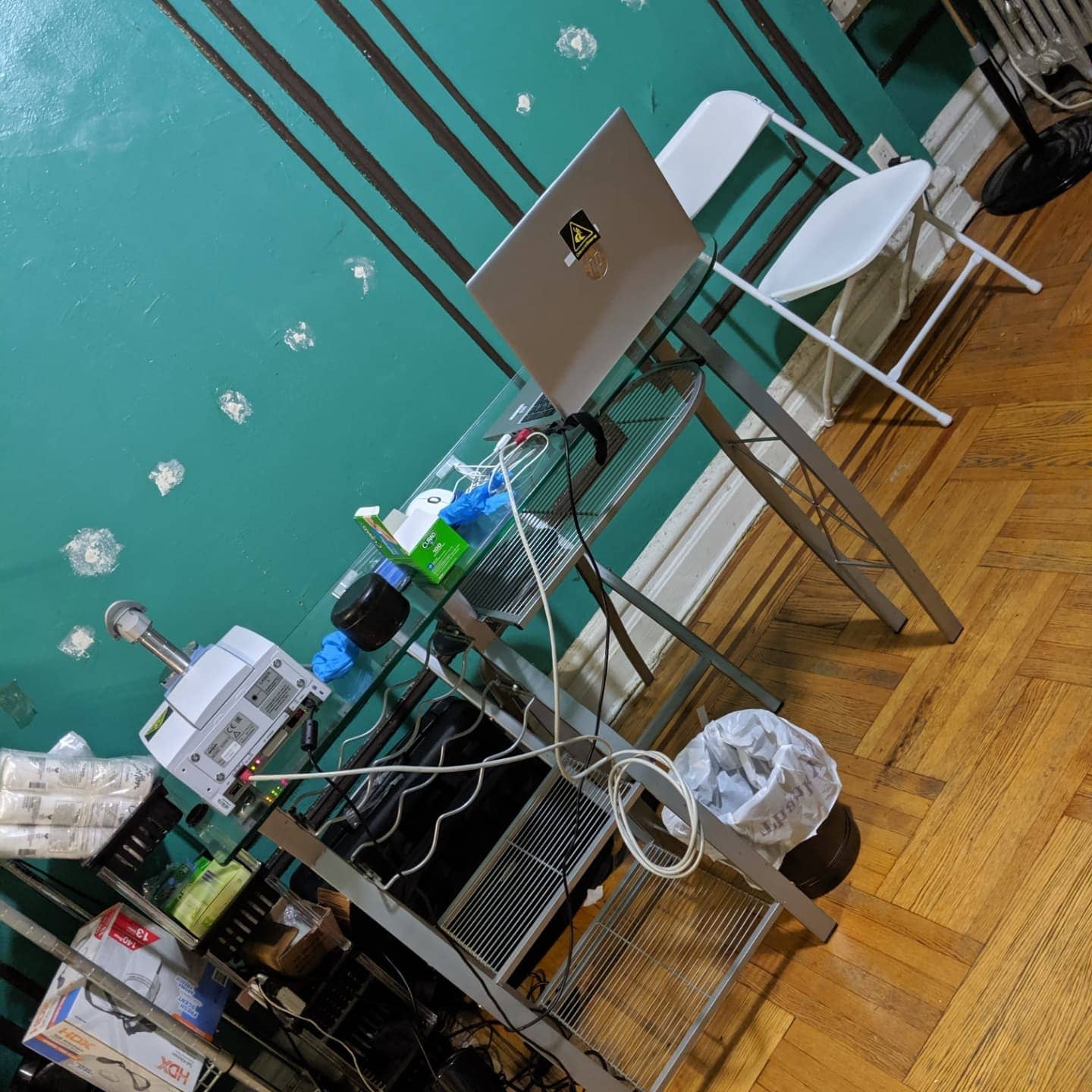
What’s the Real Link Between Weed and Psychosis? It’s Not So Straight-Forward
Thanks to everyone who gave thoughtful and non-reactionary feedback to yesterday’s article about the potential link between THC and psychosis. While the studies aren’t wholly conclusive, my main takeaway is that research is needed to understand the short-term and long-term use to the types of cannabis we are seeing today.

It’s not the first and certainly not the last of studies of this kind. It’s far too often that we can’t have a conversation about this type of information that doesn’t enrage people to respond with “poppycock! this must be propaganda from bigpharma (or some other opposing industry)!” The days of the majority being anti-cannabis and anti drugreform are winding down. We’re literally prescribing cannabis to people now, and dispensaries are giving people access to stronger, more engineered strains of cannabis, even outside of the regions where it’s regulated. It’s important to understand the potential short and long-term impacts of it.
We’ve been so conditioned to assume everything that’s “bad” being said about these drugs is either completely false or counterproductive to legalization, but that’s untrue. I’m sure these same people would want to know what goes into their favorite foods and food products, including during the cultivation/production stages, and how that impacts them. It’s the same thing. .
I would personally want to know if what I’m doing could be more counterproductive than productive, especially in the long run, because our treatment options in a lot of cases is usually just putting someone on another medication. We’re still studying mental illnesses, the brain, and other physiological processes. .
At least read for understanding before writing it off just from the headline just because you don’t think it’s true based on your own limited experiences or perspective. There’s still a lot of room for harm reduction with this information, as well as a fairly strong argument from @voltefacehub about legalization to help remove the variables in this scientific process.




